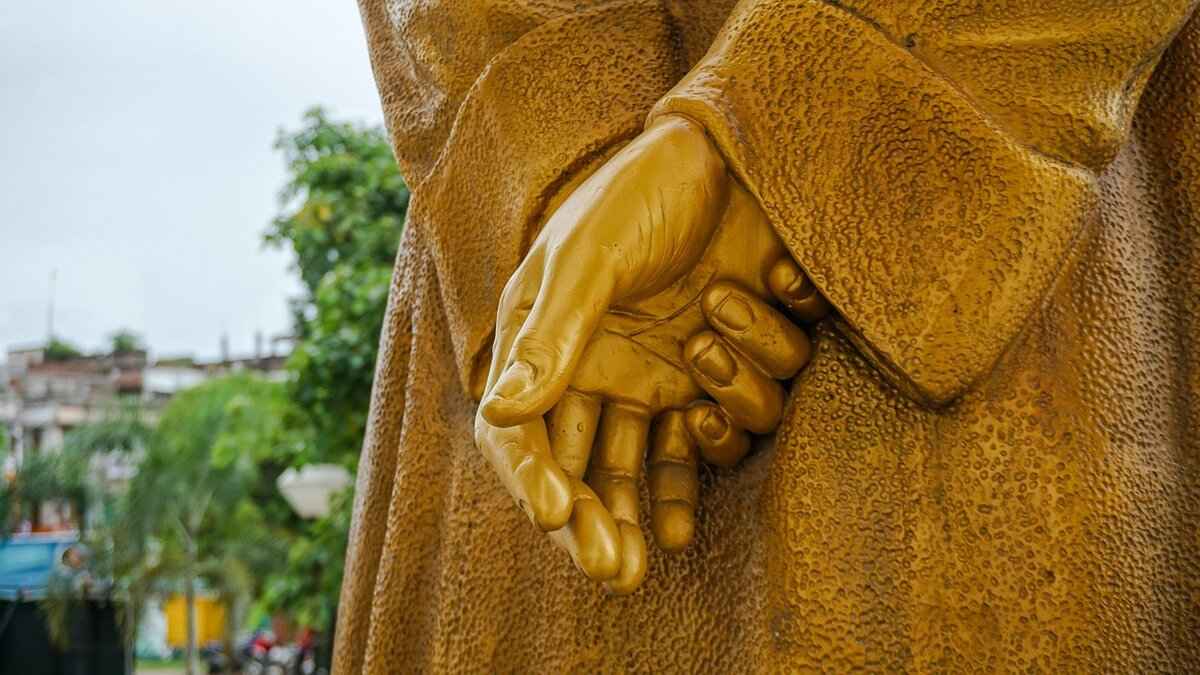This article delves into the rich history and significant contributions of West Bengal to the Nobel Prize, highlighting key figures and their profound impact on literature, peace, and science.
Historical Context of West Bengal and the Nobel Prize
West Bengal, known for its vibrant culture and intellectual legacy, has produced numerous Nobel laureates. Understanding the historical background of this region reveals how its cultural and intellectual contributions have led to global recognition.
Rabindranath Tagore: The First Nobel Laureate from India
Rabindranath Tagore, a luminary from West Bengal, was awarded the Nobel Prize in Literature in 1913. This marked a significant milestone in Indian literature, bringing global attention to the rich literary traditions of the region.
Tagore’s Literary Contributions
Tagore’s poetry, songs, and prose reflect the essence of Bengali culture. His works not only showcase his literary genius but also his ability to connect with universal themes, earning him international acclaim.
Tagore’s Philosophy and Impact
His philosophical insights and humanistic approach enriched literature and inspired future generations, establishing him as a pivotal figure in both Indian and global contexts.
Amartya Sen: A Nobel Laureate in Economic Sciences
Born in West Bengal, Amartya Sen received the Nobel Prize in Economic Sciences in 1998 for his groundbreaking work on welfare economics and social choice theory, which has influenced global economic policies.
Sen’s Contributions to Development Economics
His research on poverty, famine, and inequality has reshaped our understanding of economic development, emphasizing the importance of social justice and human capabilities.
Influence on Policy and Global Discourse
Sen’s ideas have significantly impacted policy-making and international discussions on economic development, making him a leading voice in addressing global challenges.
Mother Teresa: Nobel Peace Prize Recipient
Although born in Albania, Mother Teresa spent much of her life in Kolkata. She was awarded the Nobel Peace Prize in 1979 for her humanitarian work, profoundly affecting the lives of countless individuals.
Legacy of Compassion and Service
Her dedication to the poor and sick established a legacy of compassion, inspiring individuals and organizations worldwide to engage in humanitarian efforts.
Mother Teresa’s Global Recognition
Her work transcended borders, earning her international recognition and respect, solidifying her status as one of the most influential figures associated with West Bengal.
Recent Nobel Laureates from West Bengal
In addition to historical figures, recent Nobel laureates from West Bengal continue to emerge, reflecting the region’s ongoing contributions to various fields.
Emerging Voices in Science and Literature
New generations of scholars and writers from West Bengal are gaining recognition, showcasing the region’s vibrant intellectual landscape and its potential for future laureates.
Impact on Global Research and Innovation
The contributions of these emerging voices highlight West Bengal’s role in global research and innovation, reinforcing its significance in the modern world.
Conclusion: The Ongoing Legacy of West Bengal and the Nobel Prize
The connection between West Bengal and the Nobel Prize underscores the region’s rich cultural heritage and intellectual contributions, inspiring future generations to strive for excellence in various fields.

Historical Context of West Bengal and the Nobel Prize
West Bengal, a state in eastern India, has a rich historical tapestry that has significantly influenced its cultural and intellectual landscape. This region has been a cradle of art, literature, and social reform, making it a fertile ground for nurturing talents who have achieved global recognition, including several Nobel laureates. Understanding the historical context of West Bengal not only sheds light on its past but also highlights how its unique socio-political environment has fostered creativity and innovation.
During the late 19th and early 20th centuries, West Bengal was at the forefront of the Bengal Renaissance, a cultural and intellectual awakening that encouraged critical thinking and artistic expression. This period saw the emergence of prominent figures like Rabindranath Tagore, who became the first Asian to win the Nobel Prize in Literature in 1913. Tagore’s works, deeply rooted in Bengali culture, resonated with universal themes of humanity, love, and spirituality.
Moreover, the socio-economic challenges faced by the region, including colonial rule and poverty, spurred intellectuals like Amartya Sen to explore solutions through economics and social justice. Sen’s groundbreaking research on welfare economics earned him the Nobel Prize in Economic Sciences in 1998, further establishing West Bengal’s reputation as a hub of intellectual excellence.
Additionally, the humanitarian efforts of Mother Teresa, who dedicated her life to serving the underprivileged in Kolkata, brought global attention to the state. Her Nobel Peace Prize in 1979 emphasized the profound impact of compassion and service, reinforcing West Bengal’s legacy in both humanitarian and academic fields.
In recent years, the state continues to produce emerging scholars and creatives who contribute to various disciplines, ensuring that West Bengal remains a significant player on the global stage. The historical context of this region not only enriches our understanding of its past but also inspires future generations to pursue excellence and innovation.

Rabindranath Tagore: The First Nobel Laureate from India
Rabindranath Tagore, a luminary in the realm of literature, holds a distinguished place as the first Nobel Laureate from India. His recognition in 1913 with the Nobel Prize in Literature was not just a personal achievement but a significant milestone for Indian literature, marking its entry onto the global stage. This accolade was a testament to Tagore’s profound impact on literature, arts, and culture, both in India and worldwide.
Born in Kolkata, Tagore was a multifaceted genius—poet, playwright, musician, and philosopher. His literary works, characterized by their lyrical beauty and philosophical depth, resonate with themes of humanism, nature, and spirituality. Tagore’s most celebrated work, Gitanjali, is a collection of poems that reflect his deep spiritual insight and connection with the divine, earning him international acclaim.
Tagore’s influence extends beyond poetry. He was an advocate for social reform and education, believing in the power of art to inspire change. His establishment of the Visva-Bharati University in Santiniketan aimed to create a holistic educational environment that blended Eastern and Western philosophies. This institution became a beacon of creativity and learning, attracting students from around the world.
In addition to his literary contributions, Tagore’s philosophy emphasized the importance of universal brotherhood and peace. His thoughts on nationalism and identity were particularly relevant during India’s struggle for independence, as he sought to foster a sense of unity among diverse cultures.
Tagore’s legacy continues to inspire new generations of writers and thinkers. His work has been translated into numerous languages, ensuring that his voice resonates across cultures. As we reflect on his contributions, it is clear that Rabindranath Tagore not only transformed Indian literature but also enriched the global literary landscape, leaving an indelible mark on the world.
Tagore’s Literary Contributions
are a testament to his deep connection with the culture and ethos of Bengal. His works, which include poetry, songs, and prose, encapsulate the essence of Bengali life, reflecting its traditions, struggles, and aspirations. Tagore’s ability to weave the rich tapestry of his surroundings into his writings has earned him a revered place in both Indian and global literature.
Born in 1861 in Kolkata, Tagore was not only a poet but also a philosopher, playwright, and musician. His most famous collection, Gitanjali, is a series of poems that explore themes of spirituality, nature, and human emotion. This work played a crucial role in his receiving the Nobel Prize in Literature in 1913, making him the first non-European to win this prestigious award. The poems in Gitanjali resonate with universal themes, allowing readers worldwide to connect with his vision.
In addition to poetry, Tagore’s songs, known as Rabindra Sangeet, are integral to Bengali culture. These songs, characterized by their lyrical beauty and emotional depth, often explore love, nature, and philosophical ideas. They are performed in various cultural settings, from family gatherings to public celebrations, showcasing Tagore’s lasting influence on Bengali music and arts.
Tagore’s writings extend beyond literature; he was also an advocate for social reform and education. His establishment of Visva-Bharati University in Santiniketan aimed to promote a holistic education that emphasized creativity and cultural exchange. This institution continues to be a significant center for learning, embodying Tagore’s vision of an inclusive and progressive society.
Overall, Tagore’s literary contributions are not just confined to his texts but are woven into the very fabric of Bengali identity. His works continue to inspire generations, reminding us of the power of words to transcend boundaries and foster understanding among diverse cultures.
Tagore’s Philosophy and Impact
Rabindranath Tagore, a luminary in the realm of literature and philosophy, is celebrated not only for his poetic genius but also for his profound insights into the human condition. His works transcend mere literary expression, delving into the depths of humanism and spirituality, making him a pivotal figure in both Indian and global contexts.
Tagore’s philosophical contributions are characterized by a holistic understanding of life. He believed in the interconnectedness of all beings, emphasizing the importance of compassion and empathy. His writings reflect a deep concern for social justice and the dignity of individuals, advocating for a world where every person can realize their potential.
One of Tagore’s most significant philosophical assertions is the idea that art and life are inseparable. He viewed art as a medium through which individuals could explore their innermost thoughts and emotions, ultimately leading to a greater understanding of oneself and others. This belief has inspired countless artists and thinkers, encouraging them to use their creative expressions as tools for social change.
Moreover, Tagore’s humanistic approach has had a lasting impact on education. He founded Visva-Bharati University in Santiniketan, where he implemented a unique educational philosophy that emphasized experiential learning and the development of the whole person. This model has influenced educational practices not only in India but also globally.
In essence, Tagore’s philosophical insights and humanistic approach not only enriched literature but also inspired future generations. His legacy continues to resonate, reminding us of the power of creativity and compassion in shaping a better world.

Amartya Sen: A Nobel Laureate in Economic Sciences
Amartya Sen, a distinguished economist born in West Bengal, is renowned for his groundbreaking contributions to economic theory, particularly in the fields of welfare economics and social choice theory. In 1998, he was awarded the Nobel Prize in Economic Sciences, a testament to his profound impact on global economic policies and social justice.
Amartya Sen’s research has significantly reshaped the understanding of economic welfare. His work emphasizes the importance of individual capabilities and the role of social justice in economic development. By shifting the focus from mere economic growth to the well-being of individuals, Sen has influenced how policymakers approach issues like poverty and inequality.
Sen’s contributions to social choice theory have provided critical insights into how societies can make collective decisions that reflect the preferences of their members. His analysis of voting systems and collective choice has paved the way for more equitable and representative governance frameworks.
Sen’s ideas have not only influenced academic discourse but have also had a tangible impact on global economic policies. His advocacy for policies that prioritize human capabilities has inspired international organizations, including the United Nations, to adopt frameworks that address issues of human development and sustainability.
Amartya Sen’s legacy extends beyond his Nobel Prize. His work continues to inspire new generations of economists and policymakers who seek to create a more just and equitable world. By championing the importance of social justice, Sen has established himself as a leading voice in addressing contemporary global challenges.
In conclusion, Amartya Sen’s contributions to economic sciences have profoundly influenced our understanding of welfare and social choice. His work not only earned him the prestigious Nobel Prize but also established a framework for addressing some of the most pressing issues of our time.
Sen’s Contributions to Development Economics
Amartya Sen, a renowned economist and philosopher from West Bengal, has made profound contributions to the field of development economics. His work has not only reshaped academic thought but has also influenced practical policy-making across the globe. In this section, we will delve into the key aspects of Sen’s research and its implications on understanding economic development.
- Poverty and Famine Analysis: Sen’s groundbreaking research on the causes of poverty and famine has challenged traditional views. He argued that famine is not merely a result of food shortages but is often a consequence of political and economic factors, including inequality and lack of access to resources.
- Human Capabilities Approach: One of Sen’s most significant contributions is the development of the Human Capabilities Approach. This framework emphasizes the importance of enhancing individual capabilities and freedoms as a measure of development, rather than focusing solely on economic growth metrics.
- Social Justice and Inequality: Sen has consistently highlighted the importance of social justice in economic development. His work on inequality has brought attention to how disparities in wealth and opportunity can hinder overall progress in society.
Sen’s emphasis on social justice and human capabilities has led to a more nuanced understanding of what it means to develop a society. His insights have inspired policymakers to consider the broader implications of economic policies, advocating for a holistic approach that prioritizes human welfare alongside economic growth.
Furthermore, Sen’s research has had a lasting impact on international development organizations, influencing programs aimed at poverty alleviation and social equity. His ideas have been instrumental in shaping discussions around sustainable development, making him a pivotal figure in contemporary economic thought.
In conclusion, Amartya Sen’s contributions to development economics have not only reshaped academic discourse but have also provided practical frameworks for addressing some of the most pressing issues facing the world today. His focus on social justice and human capabilities continues to resonate, inspiring future generations of economists and policymakers.
Influence on Policy and Global Discourse
Amartya Sen’s contributions to economic thought have not only reshaped academic discourse but have also had profound implications for policy-making across the globe. His innovative ideas regarding welfare economics and social choice theory have provided a framework for understanding the complexities of poverty, inequality, and human development. By emphasizing the significance of human capabilities, Sen has shifted the focus from mere economic growth to the overall well-being of individuals.
One of the key aspects of Sen’s work is his analysis of famine and its relationship to economic policies. He argues that famines often occur not due to a lack of food but because of inadequate distribution systems and social inequalities. This perspective has led to a re-evaluation of food security policies worldwide, urging governments to prioritize equitable resource distribution and social justice.
Sen’s influence extends beyond academic circles into international organizations and governmental policies. His ideas have been integrated into the United Nations Development Programme (UNDP) initiatives, particularly in the formulation of the Human Development Index (HDI), which measures a country’s development beyond just economic indicators. This holistic approach has encouraged nations to adopt more inclusive policies that consider health, education, and income as critical components of development.
Furthermore, Sen’s advocacy for participatory democracy has inspired many policymakers to engage communities in decision-making processes. This engagement not only fosters transparency but also ensures that policies reflect the needs and aspirations of the people they affect. By promoting a more democratic approach to economic development, Sen has become a vital voice in international discussions on global challenges such as climate change, inequality, and sustainable development.
In conclusion, Amartya Sen’s groundbreaking ideas have transformed the landscape of economic policy and discourse. His emphasis on social justice, human capabilities, and participatory governance continues to resonate in the ongoing efforts to address pressing global issues. As nations grapple with complex challenges, Sen’s work serves as a guiding light, encouraging a more equitable and inclusive approach to economic development.

Mother Teresa: Nobel Peace Prize Recipient
Born in Albania in 1910, Mother Teresa devoted a significant part of her life to serving the underprivileged in Kolkata, India. Her unwavering commitment to humanitarian work earned her the Nobel Peace Prize in 1979, recognizing her profound impact on countless lives. This article delves into her legacy, humanitarian efforts, and the global recognition she achieved through her selfless service.
In 1950, Mother Teresa founded the Missionaries of Charity, a religious congregation dedicated to helping the poorest of the poor. Her organization operates in over 130 countries, providing essential services such as:
- Healthcare for the sick and dying
- Education for underprivileged children
- Support for those suffering from addiction
- Care for the elderly and disabled
Mother Teresa’s work not only transformed the lives of those she served but also inspired millions around the world to engage in acts of kindness and compassion. Her philosophy emphasized the importance of love and service, urging individuals to see the face of God in every person, regardless of their circumstances.
Mother Teresa’s dedication was recognized globally, leading to numerous awards and honors, including the Presidential Medal of Freedom and the Jawaharlal Nehru Award for International Understanding. Despite her accolades, she remained humble, often stating that her work was a reflection of her faith and love for humanity.
In 2016, she was canonized as a saint by the Catholic Church, further solidifying her legacy as a beacon of hope and compassion. Her life serves as a reminder of the profound impact one individual can have on the world.
Conclusion: Mother Teresa’s extraordinary contributions to humanity exemplify the essence of service and love. Her life’s work continues to inspire individuals and organizations to pursue humanitarian efforts, making the world a better place for all.
Legacy of Compassion and Service
Mother Teresa’s unwavering commitment to the poor and sick has left an indelible mark on the world, establishing a legacy that continues to inspire countless individuals and organizations to engage in humanitarian efforts globally. Her life’s work was driven by a profound sense of compassion and a deep understanding of the struggles faced by the marginalized.
Born in Albania and spending the majority of her life in Kolkata, India, Mother Teresa founded the Missionaries of Charity, a religious congregation devoted to serving the destitute and ill. Through her tireless efforts, she provided shelter, food, and medical care to those in need, demonstrating the power of selfless service. Her approach was not just about meeting physical needs; she emphasized the importance of love and human dignity in her work.
Mother Teresa’s legacy is evident in the numerous humanitarian organizations that have been inspired by her example. Her life serves as a call to action, urging individuals to recognize the plight of the less fortunate and to take meaningful steps towards making a difference. The impact of her work transcends borders, encouraging a global movement toward compassion and service.
Moreover, her recognition as a Nobel Peace Prize laureate in 1979 further solidified her influence, bringing attention to the issues of poverty and suffering worldwide. Her speeches and writings continue to resonate, reminding us that small acts of kindness can lead to significant change.
In conclusion, Mother Teresa’s legacy of compassion and service remains a beacon of hope, inspiring new generations to engage in humanitarian efforts. Her life is a testament to the profound impact that one individual can have in fostering a more compassionate world.
Mother Teresa’s Global Recognition
Mother Teresa, a name synonymous with compassion and humanitarianism, dedicated her life to serving the poorest of the poor. Born in Albania and spending a significant portion of her life in Kolkata, India, she became a global icon for her selfless service and unwavering commitment to those in need. Her work transcended cultural and geographical boundaries, earning her not just the Nobel Peace Prize in 1979 but also the admiration and respect of millions around the world.
Her organization, the Missionaries of Charity, founded in 1950, has grown to encompass thousands of members and operates in over 130 countries. This remarkable network has provided shelter, food, and medical care to countless individuals, highlighting her profound influence on humanitarian efforts globally.
Mother Teresa’s philosophy was deeply rooted in the belief that every act of love, no matter how small, is a reflection of divine grace. This perspective resonated with people from various backgrounds, fostering a sense of unity and purpose. Her ability to connect with individuals from all walks of life made her a beloved figure, and her message of love and compassion continues to inspire new generations.
Despite her passing in 1997, the legacy of Mother Teresa remains vibrant. Her life and work serve as a powerful reminder of the impact one individual can have on the world. The recognition she received, including the Nobel Peace Prize, was not merely an accolade; it was a testament to her unwavering dedication to humanity and the ideals of service and love.
In conclusion, Mother Teresa’s global recognition is a reflection of her extraordinary life’s work, which continues to inspire humanitarian efforts around the world. Her legacy lives on, encouraging individuals to embrace the spirit of service and compassion in their own lives.

Recent Nobel Laureates from West Bengal
West Bengal has a rich history of producing remarkable individuals who have made significant contributions to various fields, and this legacy continues with recent Nobel laureates. The region’s vibrant culture, intellectual depth, and commitment to social issues have fostered an environment where innovation and excellence thrive.
Emerging Voices in Science and Literature
- Recent Nobel laureates from West Bengal include influential figures such as Abhijit Banerjee, who, alongside his partner Esther Duflo, was awarded the Nobel Prize in Economic Sciences in 2019. Their work on poverty alleviation through experimental approaches has had a profound impact on global economic policies.
- In the realm of literature, Vikram Seth has garnered international acclaim for his poetic contributions, although he has not yet received a Nobel Prize, his works are often discussed in the context of future possibilities.
Impact on Global Research and Innovation
The contributions of these emerging voices highlight West Bengal’s role in global research and innovation. For instance, Banerjee’s research emphasizes the importance of evidence-based policy-making, which has influenced how governments approach economic challenges worldwide. His innovative methodologies have sparked interest among scholars and policymakers alike.
Moreover, the region’s universities and research institutions are nurturing the next generation of thinkers and innovators, creating a dynamic atmosphere that encourages groundbreaking research. This environment is essential for producing future Nobel laureates who will continue to advance knowledge across disciplines.
Conclusion: A Bright Future Ahead
The ongoing achievements of Nobel laureates from West Bengal signify not just individual success but also the collective potential of the region. As new voices emerge and contribute to various fields, West Bengal remains a beacon of intellectual and cultural excellence, inspiring future generations to pursue their passions and make meaningful impacts on the world.
Emerging Voices in Science and Literature
In recent years, West Bengal has become a fertile ground for new generations of scholars and writers who are making significant strides in various fields. This vibrant intellectual landscape is not only a testament to the region’s rich cultural heritage but also a reflection of its potential to produce future Nobel laureates.
As we delve into the contributions of these emerging voices, it is essential to recognize their diverse backgrounds and the unique perspectives they bring to the table. The literary scene in West Bengal is experiencing a renaissance, with young authors exploring themes that resonate with contemporary society. Their works often address critical social issues, cultural identity, and the complexities of modern life, gaining both national and international attention.
- Innovative Literary Styles: New writers are experimenting with various genres, blending traditional forms with modern narratives to create captivating stories that appeal to a broad audience.
- Scientific Advancements: In the realm of science, researchers from West Bengal are making groundbreaking discoveries, particularly in fields like biotechnology, environmental science, and artificial intelligence.
- Global Collaborations: Many scholars are engaging in international collaborations, contributing to global research initiatives that address pressing challenges such as climate change and public health.
Their achievements are not just limited to awards and accolades; they are also shaping the future of their respective fields. The impact of these emerging voices extends beyond academia, inspiring a new generation of thinkers and creators. They are redefining what it means to be a scholar or writer from West Bengal, emphasizing the importance of innovation and social responsibility.
In conclusion, the intellectual landscape of West Bengal is thriving, with new generations of scholars and writers poised to leave their mark on the world. Their contributions are a reminder of the region’s enduring legacy and its potential to nurture future Nobel laureates. As they continue to emerge, it is crucial to support and celebrate their efforts, ensuring that West Bengal remains a beacon of knowledge and creativity.
Impact on Global Research and Innovation
The impact of emerging voices from West Bengal on global research and innovation is profound and multifaceted. This region, known for its rich cultural heritage, has consistently produced thinkers, scientists, and creators who not only contribute to local advancements but also make significant strides on the world stage.
West Bengal’s educational institutions, such as Jadavpur University and Presidency University, have become breeding grounds for innovation. These schools foster an environment where students are encouraged to explore new ideas and challenge existing paradigms. As a result, numerous research projects have gained international recognition, addressing global issues ranging from climate change to public health.
- Innovative Research Initiatives: Various initiatives led by researchers from West Bengal focus on sustainable practices and technology, emphasizing the importance of environmental conservation.
- Collaboration with Global Institutions: Many scholars from West Bengal collaborate with international organizations, sharing knowledge and resources to tackle pressing global challenges.
- Contributions to the Arts and Humanities: Emerging writers and artists from the region are gaining international acclaim, showcasing the cultural richness of West Bengal and its ability to influence global narratives.
Furthermore, the state’s commitment to innovation in technology is evident in the growing number of startups and tech hubs. These enterprises are not only creating jobs but also developing solutions that have the potential to impact lives worldwide. The fusion of traditional knowledge with modern technology is a hallmark of West Bengal’s approach to innovation.
In conclusion, the contributions of emerging voices from West Bengal highlight the region’s essential role in global research and innovation. By fostering a culture of creativity and collaboration, West Bengal continues to reinforce its significance in the modern world, inspiring future generations to pursue excellence across various fields.

Conclusion: The Ongoing Legacy of West Bengal and the Nobel Prize
The connection between West Bengal and the Nobel Prize highlights the region’s remarkable cultural heritage and its significant intellectual contributions. This relationship serves as a source of inspiration for future generations, motivating them to pursue excellence across various fields, including literature, economics, and humanitarian efforts.
West Bengal has a long history of producing Nobel laureates who have made profound impacts on the world stage. The state’s rich traditions and diverse cultural practices have fostered an environment conducive to creativity and innovation. This article delves into the contributions of notable figures from West Bengal who have been awarded the prestigious Nobel Prize, showcasing their achievements and the lasting influence they have had on society.
- Rabindranath Tagore: The first Nobel laureate from India, Tagore’s literary works resonate with the essence of Bengali culture, earning him the Nobel Prize in Literature in 1913.
- Amartya Sen: Awarded the Nobel Prize in Economic Sciences in 1998, Sen’s research on welfare economics has transformed global economic policies and discussions.
- Mother Teresa: Known for her humanitarian efforts, she received the Nobel Peace Prize in 1979, leaving a legacy of compassion and service that continues to inspire.
Recent developments in West Bengal further illustrate the state’s ongoing contributions to global knowledge. Emerging scholars and writers are gaining recognition, reflecting a vibrant intellectual landscape that promises to produce future Nobel laureates.
In conclusion, the enduring connection between West Bengal and the Nobel Prize underscores the region’s rich intellectual tradition and cultural wealth. This legacy not only honors past achievements but also encourages future generations to strive for excellence, ensuring that West Bengal remains a significant contributor to global discourse in various fields.
Frequently Asked Questions
- What is the significance of West Bengal in relation to the Nobel Prize?
West Bengal has a rich cultural and intellectual heritage, producing several Nobel laureates who have made significant contributions in fields like literature, economics, and peace. This connection highlights the region’s impact on global thought and humanitarian efforts.
- Who was the first Nobel laureate from West Bengal?
Rabindranath Tagore was the first Nobel laureate from West Bengal, awarded the Nobel Prize in Literature in 1913. His profound literary works and philosophical insights have left a lasting legacy on both Indian and global literature.
- What contributions did Amartya Sen make to economics?
Amartya Sen, awarded the Nobel Prize in Economic Sciences in 1998, reshaped the understanding of welfare economics and social choice theory. His work on poverty and inequality emphasizes the importance of social justice in economic development.
- How did Mother Teresa impact West Bengal?
Mother Teresa, though originally from Albania, spent much of her life in Kolkata, West Bengal. Her humanitarian efforts earned her the Nobel Peace Prize in 1979, and her legacy of compassion continues to inspire countless individuals and organizations worldwide.
- Are there recent Nobel laureates from West Bengal?
Yes, West Bengal continues to produce emerging voices in various fields, with new generations of scholars and writers gaining international recognition. This ongoing trend reinforces the region’s significance in global research and innovation.














